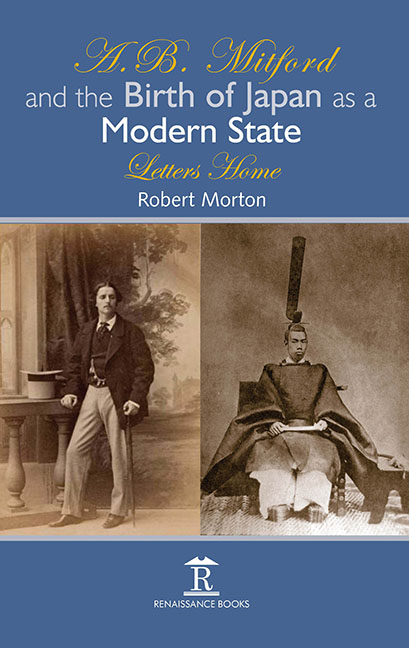Book contents
- Frontmatter
- Contents
- Foreword
- Preface
- List of Plates
- 1 Yokohama: October – December 1866
- 2 Edo: October 1866 – May 1867
- 3 The Shogun: January – April 1867
- 4 An Adventurous Journey: July – August 1867
- 5 The Birth of the New Japan: October 1867 – March 1868
- 6 Kyoto: February – March 1868
- 7 Osaka: March – July 1868
- 8 Tokyo: August 1868 – January 1870
- 9 After Japan: 1870 – 1906
- 10 The Return: February – March 1906
- 11 The Legacy: 1906 –
- Notes
- Bibliography
- Acknowledgements
- Index
5 - The Birth of the New Japan: October 1867 – March 1868
Published online by Cambridge University Press: 30 April 2022
- Frontmatter
- Contents
- Foreword
- Preface
- List of Plates
- 1 Yokohama: October – December 1866
- 2 Edo: October 1866 – May 1867
- 3 The Shogun: January – April 1867
- 4 An Adventurous Journey: July – August 1867
- 5 The Birth of the New Japan: October 1867 – March 1868
- 6 Kyoto: February – March 1868
- 7 Osaka: March – July 1868
- 8 Tokyo: August 1868 – January 1870
- 9 After Japan: 1870 – 1906
- 10 The Return: February – March 1906
- 11 The Legacy: 1906 –
- Notes
- Bibliography
- Acknowledgements
- Index
Summary
These are words from the most famous Japanese song outside Japan, thanks to Gilbert & Sullivan using it in The Mikado. ‘Mr. Mitford’, W.S. Gilbert reminisced years later,
very kindly offered to assist us in the production, and it was at one of the rehearsals at which he was present that I … asked him if he could suggest an effective Japanese air with native words that would suit the Mikado's entrance. He at once suggested “Miyo [Miya] Sama,” and Sir Arthur Sullivan, who jumped at the idea, took down the notes as Mr. Mitford hummed them, and I took down the words from his dictation.
Mitford was a good musician, once being described as perhaps the finest amateur cornet player of his day. He successfully passed on both the words and tune to Gilbert and Sullivan; where the words are different from the original, this was surely deliberate. The first line of the original is ‘Miya-san, Miya-san’, which would translate as something like ‘Mr. Prince, Mr. Prince’. One of the charms of the song is that the writer is innocent and unworldly as well as being a bit tongue in cheek. But Mitford took princes seriously and replaced ‘san’ with the more respectful ‘sama’, which fits the tune just as well.
The question that Gilbert and Sullivan left in the air in The Mikado is answered in the second verse:
The purpose of the song was to rally forces against the ‘enemies of the Emperor’. But who in Japan would be an enemy to a fifteen-year-old hidden away in Kyoto with no power whatever?
Mitford was bored. He was stuck in Edo ‘vegetating as usual after a trip [to Japan's west coast] and clearing up the accumulation of rubbishy papers which a long absence generates’. There was no shortage of things going on – machinations were raging in Kyoto and Osaka for the future of Japan – but unfortunately Mitford did not know about them and had to rely on unreliable rumours.
- Type
- Chapter
- Information
- A. B. Mitford and the Birth of Japan as a Modern StateLetters Home, pp. 76 - 97Publisher: Amsterdam University PressPrint publication year: 2017



